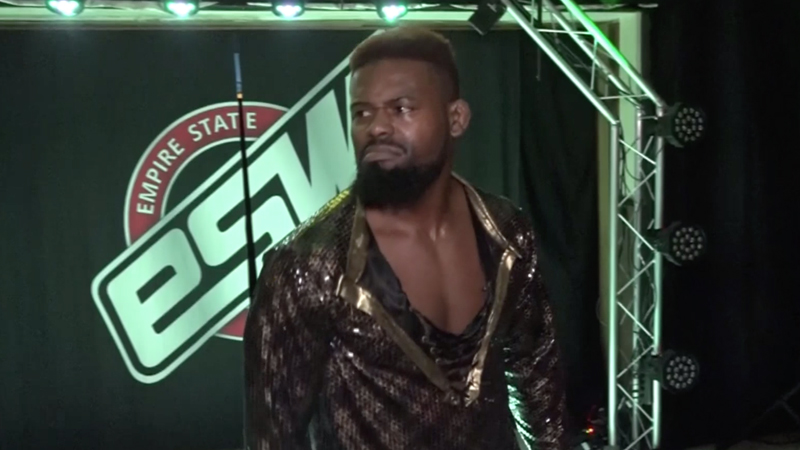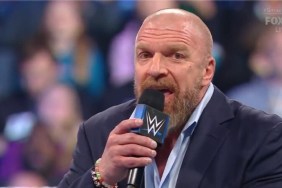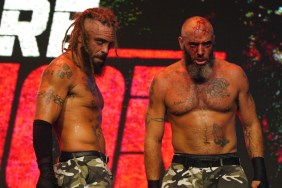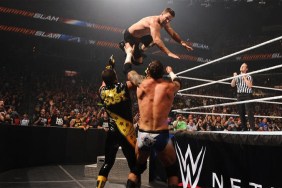Fred Yehi recently spoke with Andrew Thompson of POST Wrestling about his MLW tenure, why black wrestlers need to create their own promotions instead of waiting to be given an opportunity, a potential Catch Point reunion and much more. Highlights and the full video can be seen below:
Yehi discusses his time with MLW:
“I don’t know. Let me first say, I enjoyed myself there but I didn’t quite understand — this is my experience — I didn’t quite really understand what was going on, what was really gonna be asked of me. I know they expressed certain ideas and I ended up going on a tour of Germany and then when I came back, it’s like everything kinda changed up. Like all this stuff happened and I’m like, ‘Wait, what am I doing? What’s going on?’ So it was more-so, that was my experience with MLW. Something about a contract was mentioned to me but nothing was ever further discussed and honestly, I was in the mindset of I didn’t wanna sign with anyone. I just came out of a two-year deal with EVOLVE and I didn’t really wanna sign with another company at that point. I just wanted to kinda freelance and get around and just keep learning and keep growing anyway. But, that was my experience. I had a good time working with Tom Lawlor and Simon Gotch, shoutout to them. Just interact with people. I had a good time. Linking up with Jason Cade and getting on the PS4 or whatever. I had a really good… I had a good time but as far as that [a contract], I didn’t really know what they were trying to do. It just is what it is.”
Fred Yehi thinks black wrestlers should create their own opportunities and promotions to spotlight black talents:
“It’s something. I read Lou Thesz’s book like five times, The Hooker. So I read that like five times man. It’s [racism] deep in the roots. It is what it is. Professional wrestling here in the US, it’s white-dominated, it’s white-ran and of course in Japan, they have their thing and in Mexico they have their thing and for the longest time, being a black performer, we were seen as the minority. In my opinion, we were the minority even if there was a Japanese worker on that show or whatever. You’d bring in the Mexican talent, the blacks were always the foreigner and the reason being because, the Japanese, they have their own. Mexico, they have their own. They have two or three major companies if I’m not mistaken and Japan has five, six, maybe seven in theirs and here in the US, everything is pretty much — the major companies are white-owned. Problem is, black performers, we’re striving to make a name for ourselves on these other platforms that are not owned or dominated by us and because of that, only a percentage of us really get those opportunities and [an] even smaller percentage of us reach a certain level of a higher success.
And it kinda sucks because it puts us in a situation where we have to compete against ourselves, which I see it a lot where it’s a shame where you don’t really hear, ‘Well who is the best Japanese talent? Who’s the best Mexican talent?’ You don’t really hear that. You hear that about the black talent, because we don’t have something for ourselves. I put up a post on Twitter about a week ago and I just wanna clarify it. I’m not at all pushing for segregation. We, black performers, we have to be liberated from that whole system and we need to design a system for ourselves where we create our own stars, we create black stars and we don’t depend on these major companies to do that for us. So, that’s very important. I believe that’s a change that needs to take place and I believe there are several other black wrestlers like myself who are taking those actions and who are taking that approach. We’re not just waiting for opportunities, we have to build something for ourselves and will we see, will we reap all the benefits in this generation? Who knows but, we could be very well blazing that trail for the next generation of black wrestlers coming up but I think that’s a pretty important — it’s important we actually — I’m glad more and more of us are waking up to that, because again, it’d be so phenomenal to see 20 black-owned wrestling territories running here in the U.S. and whatnot and then from there, venturing overseas or what have you but that’s the thing, we need that. We really do. There’s too many, too many, too many of us who are just so talented and it’d be a shame trying to waste all of that talent trying to get onto someone else’s thing. No, build our own. We need to build our own at this point.”
Yehi on a possible ‘Catch Point’ reunion, his thoughts on being one of the old EVOLVE talents that hasn’t been signed yet:
“I mean, my thoughts on it is this; obviously we’re all in different places and I could speak on my story. I think it’s very interesting that — actually, I saw an old EVOLVE card. Someone sent me [it] and said, ‘Hey, what do you think of this?’ And basically everyone on this card went [on] to get signed to major deals whether it was WWE, AEW or going off to New Japan and it was like, ‘Man, I’m the only one on the card that didn’t get that shot’ and I think that’s pretty interesting and I think it’s pretty cool, and that’s just my story. That’s just my story. I’ve always made it a point to treat everyone with respect and be a professional and you know, I’ve accepted that possibly, none of that stuff was meant to be in the deck of cards for Fred Yehi. Perhaps that was the case. Perhaps that’s the case just for the next couple of years. Who knows?
Anything could happen, we don’t really know but I know where my heart is now, but that’s just what is what — that’s just my story. I can’t really explain why it has happened that way and why it is what it is at this point. But as far as Catch Point reuniting, I could see it as a really cool thing. Would I be interested in it? I’m kinda 50/50 on it. Again, we’re all in different points of our careers right now and I would have to make that decision of, ‘Hey, would that be best for me?’ I’d have to make that decision but, again, for now I know where my heart is for now so…”









